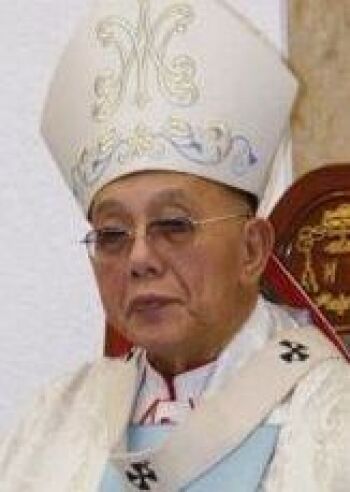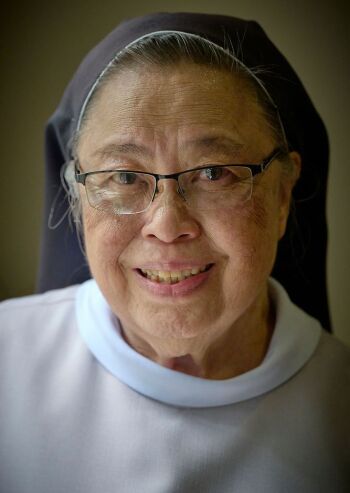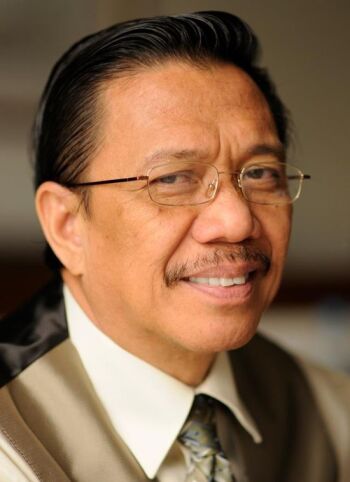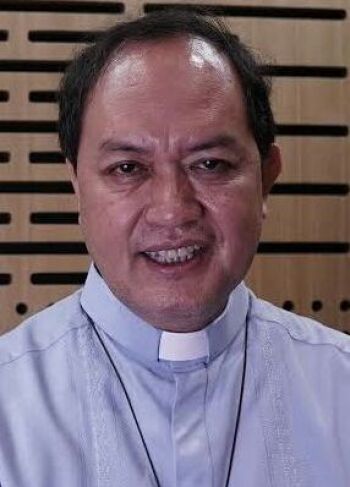Religion: Religious Leaders Post-1900
Jaime Sin (1928-2005)

Religion and Branch: Christianity (Catholicism)
Title: Cardinal, Archbishop of Manila
Jaime Sin (1928-2005) was a cardinal of the Roman Catholic Church and served as the archbishop of Manila, one of the most influential religious positions in the Philippines. He was ordained as a priest in 1954, served as archbishop of Manila from 1974 until his retirement in 2003, and was elevated to cardinal in 1976.
Throughout his tenure, Cardinal Sin was a staunch advocate for democratic principles, human rights, and social justice. He frequently spoke out against corruption and abuses of power. He played a pivotal role in guiding the spiritual and moral direction of the Catholic faithful in the Philippines, a predominantly Catholic nation.
Cardinal Sin was not just a religious leader but also a key figure in the Philippines' political landscape. He played a crucial role during the People Power Revolution in 1986, using the church's influence to support the movement that eventually led to the ousting of the then-dictator Ferdinand Marcos. His voice and stance greatly influenced public opinion and political actions during this period.
Sin's influence extended beyond religious matters. He was a moral compass for many in the Philippines during times of political turbulence and transition. He is remembered not just for his spiritual leadership but also for his commitment to justice, democracy, and the betterment of the Filipino people. His legacy is that of a church leader deeply engaged with the socio-political issues of his time.
Mary John Mananzan (1937 to Present)

Religion and Branch: Christianity (Catholicism)
Title: Nun, Theologian, Activist
Mary John Mananzan is a Benedictine nun, feminist theologian, and women's rights advocate in the Philippines. She belongs to the Order of St. Benedict and has served in various capacities within her religious community. She was the prioress of the Missionary Benedictine Sisters in the Philippines.
Sister Mananzan is recognized as a pioneering figure in the development of feminist theology in the Philippines. She's known for integrating feminist principles with Christian theology, challenging patriarchal structures and beliefs within the church and society. Mananzan has been an outspoken advocate for women's rights and has been actively involved in women's movements in the Philippines. She co-founded the women's party-list group, GABRIELA, which fights for women's rights and welfare.
Mananzan served as the president of St. Scholastica's College in Manila, one of the leading Catholic educational institutions in the Philippines. Under her leadership, the institution became known for its commitment to women's issues, peace education, and social justice.
Throughout her life, Sister Mananzan has been actively involved in social and political issues, advocating for the marginalized and oppressed. She has spoken against human rights violations, environmental degradation, and other pressing societal concerns. Mananzan also has authored and edited several books and articles on feminist theology, spirituality, and social issues, further establishing her as a leading voice in these areas.
Mananzan is a significant figure in both the religious and socio-political landscape of the Philippines. Her commitment to feminist theology and women's rights has paved the way for discussions and reforms in the church and society at large. Her multifaceted roles—as a nun, educator, theologian, and activist—highlight her dedication to creating a more just and inclusive society.
Eli Soriano (1947-2021)

Religion and Branch: Protestant Christianity
Title: Preacher, Televangelist, Founder of Members Church of God International
Eli Soriano was a Filipino preacher and televangelist best known for his role as the leader of the Members Church of God International (MCGI), commonly known as Ang Dating Daan (meaning "The Old Path") in the Philippines.
As the presiding minister of MCGI, Soriano played a pivotal role in shaping the doctrines and practices of the church. The church is known for its "Itanong Mo Kay Soriano" segment (Ask Soriano) where members and non-members alike can ask questions about religion.
Soriano was the main host of the radio and television program Ang Dating Daan, which first aired in 1980. The program, which broadcasts in multiple languages, is known for Soriano's Bible-based question-and-answer sessions, where he responds to queries about faith, doctrine, and religious practices. Beyond the Philippines, Soriano and the MCGI expanded their broadcast to different languages catering to audiences in various countries. This international outreach helped spread MCGI's influence and reach different parts of the world.
Soriano was also known for his charitable activities. Under his leadership, MCGI initiated various charitable endeavors, including free medical and dental services, blood donation drives, and daily free meals for thousands of indigents. Soriano's teachings and leadership in MCGI have left a lasting impact on its members and followers both in the Philippines and abroad.
Pablo Virgilio Siongco David (1959 to Present)

Religion and Branch: Christianity (Catholicism)
Title: Bishop of Kalookan
Pablo Virgilio Siongco David, commonly known as Bishop Ambo, is a Filipino prelate of the Roman Catholic Church. He was ordained as a priest in 1983, appointed auxiliary bishop of San Fernando as well as titular bishop of Guardialfiera in 2006, and appointed bishop of Kalookan in 2015. The Diocese of Kalookan covers certain areas of Metro Manila, particularly Caloocan, Malabon, and Navotas.
Bishop David has been a vocal critic of the war on drugs initiated by President Rodrigo Duterte's administration, as it has led to the death of thousands. He's known for his strong stance on human rights and the sanctity of life, making him a significant voice in the Philippine Catholic Church on this issue. In his diocese, Bishop David has emphasized pastoral care for the families of victims of extrajudicial killings. This has included initiatives such as counseling services and scholarship programs for orphaned children.
Apart from his pastoral duties, Bishop David is also recognized for his academic contributions. He's a biblical scholar and has taught in various seminaries and schools of theology in the Philippines. Additionally, he often appears in media, sharing his insights on religious and social issues.
Bishop David is active on social media platforms, particularly on Facebook, where he shares his reflections, pastoral letters, and views on contemporary issues. His online presence allows him to connect with a broader audience and engage with the younger generation. Bishop David's leadership, especially in the context of the drug war and its impacts on Filipino families, positions him as a prominent and compassionate voice in the Philippine Catholic Church's hierarchy.
Copyright © 1993—2025 World Trade Press. All rights reserved.

 Philippines
Philippines